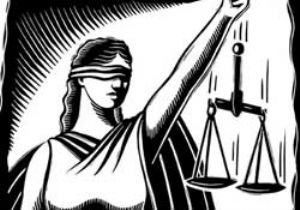When You Know It’s Unjust

One of the challenges of charity is that there are all sorts of nebulous aspects to supporting worthy causes. Among the most common are the many ways they can have unintended consequences. There is also the question of fraud – from non-profit institutions that spend too much on themselves, to those that don’t do all of what they say they do, to those that donate money, intentionally or not, to liars and scamsters.
I have an abiding interest in charitable giving. Not because I think it is virtuous, but because I see it as a contributing factor to being a happy person. I also believe that it exists in everyone as a species survival instinct. It’s part of our DNA.
Of the various causes I contribute to, one that I feel strongly about is reversing wrongful convictions that result in incarceration or capital punishment. As a result, I’ve been interested in the Innocence Project since it was created about 30 years ago. I’ve also worked directly with incarcerated felons, which smartened me up in several ways. For example, it opened my eyes to the fact that for every unjustly convicted and imprisoned innocent person, there are probably ten that claim to be innocent but are not. Twice, I’ve had the disappointment of spending considerable time and money trying to reverse a conviction that I eventually realized was just.
Which is to say that when you get into the business of charity, good intentions are not enough. You want to be doing the right thing for the right people.
The good news is that when DNA is involved, the chance of being wrong is reduced to nearly zero. And that’s why, however much I would prefer to work directly with individuals, I am giving to non-profits like the Innocence Project that have the resources to bring to court cases that have DNA evidence. (You’d be amazed at how many innocent people sit in jail today for whom there is DNA evidence that exculpates them, except that the DAs don’t want to reopen their cases.)
DNA plays a key role in the work of the Innocence Project. The founders, young lawyers at the time, realized that if DNA technology could be used to convict people guilty of crimes, it could also be used to prove that people that had been wrongfully convicted were innocent.
If you’d like to support the work of the Innocence Project’s DNA efforts, you can read more here.
 MarkFord
MarkFord